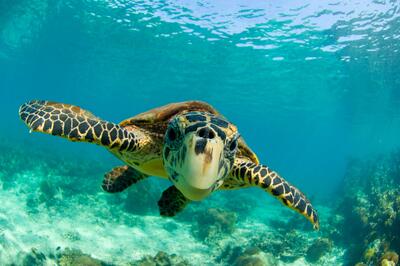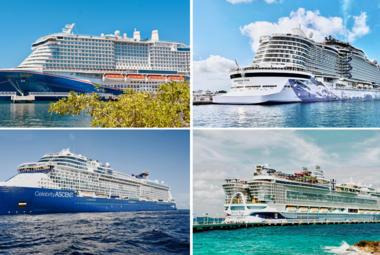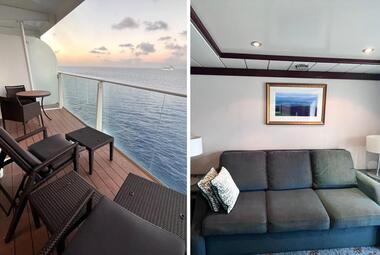On World Animal Day, Royal Caribbean International marks a major milestone in its partnership with the World Wide Fund for Nature-Australia, focused on saving the endangered hawksbill turtle species from extinction.
A new DNA extraction test will offer scientists and conservationists vital information to track – and ultimately help end – the illegal trade of hawksbill turtle products. This is a significant breakthrough led by WWF Australia, Royal Caribbean the NOAA Fisheries’ Southwest Fisheries Science Center (SWFSC), in California, USA.
The innovative project forms part of Royal Caribbean and WWF’s five-year global partnership to ensure the long-term health of the oceans, supporting WWF’s global oceans conservation work and raising awareness among the company’s more than 5 million passengers about the importance of ocean conservation.
Turtle lovers and holidaymakers are encouraged to support Royal Caribbean and WWF’s efforts and #thinkbeforeyoubuy while travelling overseas.
Hunted for their beautiful shells, the species is now listed as critically endangered by the International Union for the Conservation of Nature (IUCN), with the scientific community estimating as few as 6,700 breeding females remain in the Indian and Pacific Oceans.
This novel DNA test and database is a significant achievement in our partnership with WWF, giving authorities and researchers vital information to protect the species. Our vision is for a future in which hawksbill turtles return to their former numbers to perform their crucial role in maintaining coral reefs.”
Hawksbill turtles from different regions, or even some countries, are genetically distinct, and their DNA signatures can be used to identify different nesting areas. The new test will allow scientists and marine conservationists to identify which where tortoiseshell products have come from and pinpoint hawksbill turtle populations to allow for targeted conservation efforts.
The next step in the project is to build a more comprehensive genetic database of all hawksbill rookeries across Asia Pacific to help identify what populations there are in different locations to protect those most at risk from poaching. This kind of information is limited or currently unavailable and will provide vital information for wildlife managers and law enforcement to act on.
WWF-Australia announced the DNA test breakthrough at the 18th meeting of the Conference of the Parties of the Convention on International Trade in Endangered Species of Wild Fauna and Flora (CITES CoP18) in Geneva, Switzerland last month.
CITES CoP saw further wins in the fight to protect hawksbills from illegal trade. Thanks to decisions made at the CoP, parties are now urged to work together to improve monitoring, detection and law enforcement activities relating to the illegal hawksbill turtle trade. This includes sampling wild turtle populations and seized shell products.







